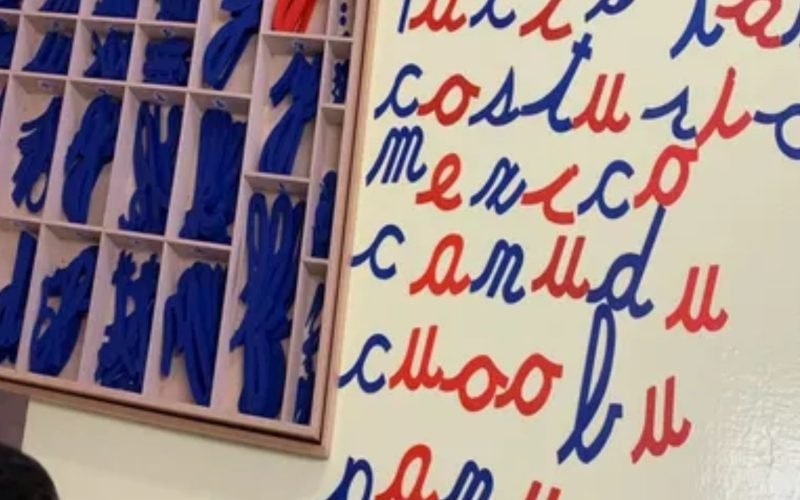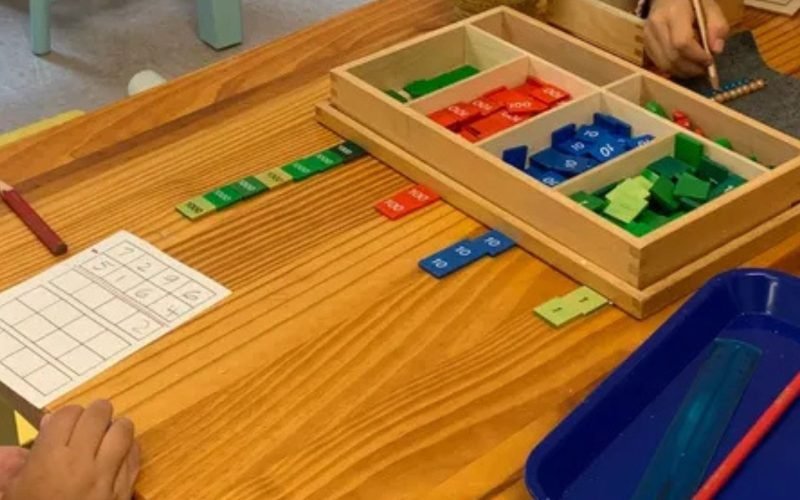montessori curriculum

Programs
Our Programs
We offer programs for children from 3 to 6 years old, including full-day, hybrid, and half-day options. Our curriculum includes practical life skills, sensorial exploration, language, math, science, and cultural studies. We also offer after-school care and summer camp programs.
Curriculum
The Primary Montessori Curriculum

Practical Life
Through the use of uniquely designed materials the child learns to perform the basic actions that lead to functional independence activities that involve Care of the Self, Care of the Environment, Food Preparation and art. The primary objective is to nurture the child’s concentration, foster independence, enhance coordination, refine fine motor skills, improve hand-eye coordination, and instill a sense of order. This foundational area sets the stage for development across all other learning domains.


Sensorial
The child’s use of Sensorial materials will facilitate a refinement of the child’s senses(sight, hearing, touch, smell and taste); assist the child in classification gradually developing finer and finer distinctions and lead to abstract thought, always moving from the tangible and concrete to the abstract as the child learns to record sensory impressions accurately. This area includes an introduction to music, geometry, algebra, and geography. Cultural studies focus on global holidays, while Science engages children in classification exercises and imparts nomenclature for tree, leaf, and flower parts, aiming for an ecological perspective and a sense of environmental responsibility. These subjects are seamlessly integrated into various lessons throughout the classroom.

Language
The language area focuses on spoken language, writing, and reading. Children are given enriching vocabulary and experiences, and opportunities for experssion, ultimately building self-confidence. The writing journey commences with learning sounds and symbols, progressing to constructing words using the Moveable Alphabet. Mechanical writing skills are honed as children transition to using writing tools such as chalk and later pencils on paper. Reading unfolds as a step-by-step process, involving symbol recognition, sound analysis, and synthesis. Beginning with phonetic words, progressing through phonograms and puzzle words, children gradually evolve into proficient readers. This journey equips them with a comprehensive understanding of grammar and syntax, empowering them to read with fluency and comprehension.



Mathematics
The materials in this area are physical representations of mathematical concepts – this includes geometry. It is important for the child to access to mathematical experiences through sensorial manipulation. Qualities of the other three core areas can be found in the approach to mathematics and the idea is to give the whole concept first and then move on to the details. There are six basic groups of mathematics instruction and each one is presented in a three-step pattern: a concrete experience of the concept, followed by isolation of the concept and finally a combination of the concrete with the abstract.

Primary Half Day Education Program
The Primary Half-Day Education Program offers Montessori education to three-year-old children, emphasizing foundational skills, social development, and a love for learning.
Primary Hybrid Education Program
The Primary Hybrid Education Program blends traditional and Montessori education, integrating Montessori principles with other methods to meet diverse learning needs.


Before-School Program
A Before-School Program in a Montessori setting provides early morning care and activities for children before the regular school day begins, offering a supportive and engaging environment to start the day positively.
After-School Program
The After-School Program extends the Montessori learning environment beyond regular school hours, providing additional activities, support, and enrichment opportunities for children in a relaxed and supervised setting.


